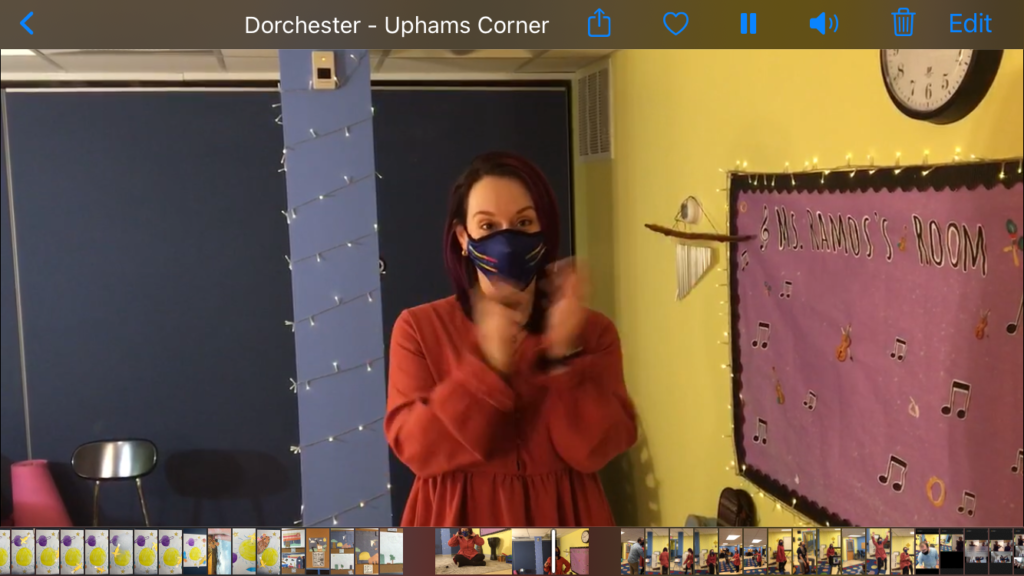
Conservatory Lab students don’t just say,
“I’m learning music.”
They say,
“I’m a musician.”
This is by design: Resident Artists have created a program that makes space for students to take ownership of what they are learning from very early on. Musical performance is a global skill, like reading or drawing, and in order to teach it, young people must learn one building block at a time. Taking a student-driven approach keeps students motivated and helps them develop a positive self-identity as musicians.
How do Resident Artists promote agency for our youngest learners?
One example is how our resident artists work with young learners. Every music class is structured around routines that create concrete and fun ways of practicing fundamentals. Resident Artists offer learning experiences that expand, little by little with new songs, activities, and kinesthetic reinforcements like sign language and solfege. As students develop mastery, they are each empowered to tap into opportunities to improvise, create, and lead.
As you can see from this Early Childhood information performance– “informance”– that took place during our celebration of learning, young learners are not only able to participate, but lead each other in the foundational routine, “The Five”.
Marcus, the student-leader demonstrates how he has developed an internal sense of tempo by watching the Resident Artists on the video screen. Just like you and me, he cannot hear the drums or the words, but he can see the way Mr. Lynch and Ms. Ramos are moving and keep time.
Resident artists also include opportunities to create within every lesson. Starting with simple sound and motion introductions as students learn each other’s names at the beginning of the year, students gradually learn to create improvisational motions and rhythms that give students agency as they gain the ability to maintain tempo while they sing. For example this video from a class with Resident Artist Alexandria Ramos.
Giving students the skills they need to create beautiful music and then sharing the stage with them makes it clear that adults value their contributions, and gives them confidence to try new things.